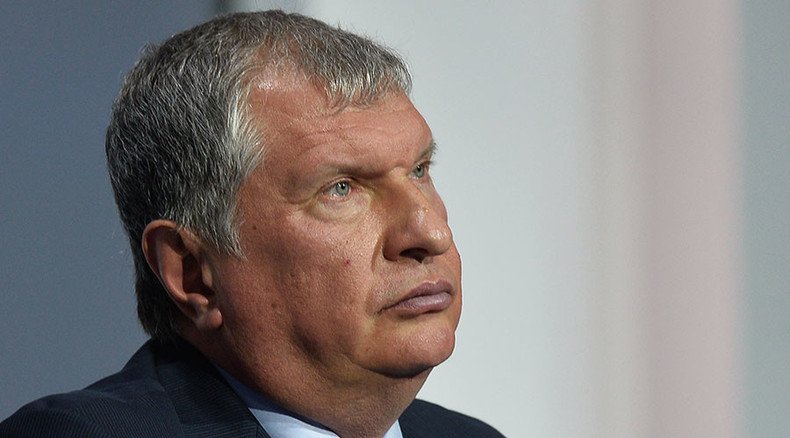OPEC no longer oil market key regulator, US is - Rosneft CEO

The main role in regulating the oil market has transferred from the Saudi Arabia-dominated OPEC cartel to the US, says Rosneft CEO Igor Sechin. Shale deposits are not the only factor, he added.
According to Sechin, besides shale, the US has “all the factors influencing the development of a competitive oil market.” This means financial resources, financial derivatives, stock exchanges, a developed system of pipelines and a large number of contractors working in the country, he said at the Russia Calling forum in Moscow on Tuesday.
READ MORE: OPEC says join the club, Russia not interested – Rosneft CEO
"So, the medium-term prospects for the world oil market will be determined by the market in the US,” Sechin added.
As for Saudi Arabia, Sechin says it’s been actively dumping and cutting prices.
"In terms of competition, we are seeing now that Saudi Arabia has even come on the Polish market, where it has never been; it’s supplying raw materials through Gdansk. Actively dumping,” he said.
More than $500bn by 2035 in Russia-China energy deals - Rosneft CEO http://t.co/U1nOsk7Kzopic.twitter.com/UVKHgpweGq
— RT (@RT_com) September 4, 2015"The struggle for market share is one of the factors affecting oil prices. This is reflected in the budget revenues,” Sechin added.
He also said that production costs for Russian oil companies are the lowest in the world - $4 per barrel. At Rosneft the figure is even lower - $2.80, which is the best in the world, according to Sechin.
OPEC sees crude price recovery in 2016 http://t.co/bw0Z50H7Alpic.twitter.com/dxjNvbl3YF
— RT (@RT_com) October 12, 2015Rosneft has turned to a one-year budget instead of a conventional three-year one due to global economic uncertainty. However, the situation is stable, “we have a liquidity reserve that allows our current activities,” the CEO concluded.












